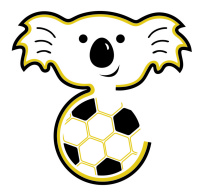Common Compaints
There are various common complaints which arise in team sports and football, they include:
Insufficient Game Time
These complaints are not child protection issues and are often resolved through mediation with the coach and club. It is a decision for the coach of a team to determine how much game time players receive and this is particular where representative and elite football is involved. Of course it would be ideal for all players to have equal game time and this should be encouraged where possible and particularly in amateur football. Some associations and clubs have policies relating to amateur football game time. Contact your local association or club for further information and enquire whether they have a game time policy.
All complaints regarding insufficient game time should be submitted to the club for resolution. If a club has concerns about game time then the usual process is for the club to discuss the issue with the coach but the decision of the club is final in these matters.
It is important that parents and players are reminded that football is a team sport and that time on the bench is an accepted part of being in a football team. The strategies used by coaches are many and varied in their efforts to try and provide players with fair game time but equal time is not always possible particularly in representative and elite football where the games are closely contested and where player fitness, endurance, ability and team cohesion are factors in player selection, rotation and positioning.
Non Selection in team or squad
These complaints are not child protection issues. The selection of players into particular teams or squads is a decision for the selectors or selection committee. There may also be selection criteria which players are required to meet.
Players are generally selected into teams and squads for several reasons including skill, strength, stamina, physique, fitness, sportsmanship, teammanship, commitment and a willingness and ability to learn and improve. A good behaviour record both on and off the field, is also beneficial.
Children in all sports are often told they are highly talented and are going to reach the elite level or be the next superstar. People often make these remarks to assist in building a player's self esteem and confidence but parents need to be mindful of this and not take such comments as factual. Unqualified people should avoid making such comments as this can result in placing unnecessary pressure and unrealistic expectations on children and could result in lowering the child's self esteem when it is realised that they are not as talented as what has been suggested. If a child is partiularly talented then they will usually be identified on their own merits and then follow the available processes and development pathways in football.
Our team is not winning - my child is not scoring goals
It is interesting to note that a study on children's sport found that the top 3 reasons children play amateur sport are:
To make friends; To have fun; and To play the game.
Parents should remember that winning is not always a priority for children and that just playing with their friends, having fun and kicking the ball is what they base their good experience on. Parents should support their children and encourage good sportsmanship no matter the outcome of the game - win, lose or draw. Parents and others who stress about a child's sport can unknowingly put unwanted pressure onto the child. Placing pressure on a child can have a detrimental effect on their confidence, distract their focus, lower their self esteem and effect their enjoyment of the game.
Sport is often the only outlet a child has from the pressures of school and life in general so it is important to ensure they are allowed to enjoy their sport, have a good experience and participate on their terms.
Behaviour of the Coach
Behaviour of a frustrating nature by coaches and officials often occurs at elite levels of sport where the pressure to succeed is often greater. Clubs and parents who place unrealistic expectations on a coach can also contribute to the frustrating nature of a coaching role.
Inappropriate behaviour by coaches is unacceptable and clubs and associations are responsible for taking appropriate action where they consider the behaviour of their coaches and officials to be in breach of acceptable standards and the Coaches Code of Conduct. In Association football, the Association has a level of jurisdiction over coaches and team officials this behaviour can result in those persons appearing before the Association tribunal for reported offences.
In state competitions conducted by Football NSW offenders are reported and required to appear before the Football NSW General Purposes Tribunal.
Penalties imposed for such offences depend on the level of offence and on the findings of the tribunal or committee considering the matter.
Offences are always dealt with on a case-by-case basis as they all have differing contributing factors and the penalties applied can depend on these and on a person's previous record.
In a situation where a coach has exhibited inappropriate behaviour the following options and penalties may be considered suitable depending on the level of offence.
- Speaking with the coach about their behaviour
- Monitoring the coach to observe the reported behaviour
- Mentoring the coach on how to improve his/her behaviour
- Mediation between the aggrieved parties
- Required to complete the Play By The Rules on-line training
- Required to complete an accredited coaching course at Football NSW
- Issue of a written warning to the coach about their behaviour
- Taking disciplinary action
- Suspending the coach from his/her duties for a period of time
- Dismissing the coach
- a combination of some of these.
Any action taken is at the discretion of the club, association, tribunal or committee considering the matter. The person making the complaint DOES NOT determine or have input into the penalty applied. An offender should also consider recognising that they have made a mistake and offer an apology. Such action can often result in a good outcome for all and can enable the parties involved to move forward.
Failure to release a player from a contract
The release of a player from a contract is a matter for resolution between the club and the player involved as the contract (agreement) is between these two (2) parties. Failing to release a player from a contract is not a child related offence.
COMPLAINT PROCESSES
When a person has a complaint then it is up to them to decide whether they want to proceed with the complaint or not. If a person is unsure what to do then they may consider the following options:
- Do nothing
Consider what may happen if nothing is done. If the problem is likely to continue or get worse then doing nothing may not be suitable.
- Direct Approach
Consider whether speaking to the person causing the problem may resolve the matter. If the person knows about the concerns they may do something straight away to prevent the problem from continuing or apologise for what has occured. In most cases it is only fair that the person is provided with an opportunity to fix the problem themselves.
- Seek mediation
This is where a club official or another person may act as a mediator between to two parties involved. For example: If a parent is having a problem with a coach, a meeting may be arranged between the parent and the coach with a club official acting as mediator. This way the problem can be discussed in a polite manner.
- Verbal Complaint
The matter could be discussed with the MPIO, Secretary, President or another official of the club. This may provide the club an opportunity to monitor the situation. A club may request that a written complaint be lodged before they take any further action.
- Complaint by a child
A verbal complaint to an appropriate adult by a person U18 years of age should be acted upon. Where this occurs the adult they report the incident to may take lodge complaint on behalf of the child. Appropriate adults may include their parent or guardian, a school teacher, a school counsellor or a member of the Police.
- Official Complaint
An official complaint should be addressed to the Club or Association Secretary or General Manager, be in writing and be signed. The person who signs the complaint must be able to be identified and be contactable. It is important to note that the person being complained about will be informed of the complaint and may even be provided with a copy of the complaint as it is their right to be notified of any complaint made against them. An unsigned written complaint, an anonymous complaint or a rumour cannot be acted upon.
- Other Agencies
Advice can also be sought from the Police, Department of Community Services, a solicitor or another Government Authority.
COMPLAINT HANDLING
When a complaint is received a club or association should immediately consider whether there is any immediate risk to the parties involved and if so take action to remove that risk. If there is a possibility of further risk to a child by a coach or manager then appropriate action could be for the club to stand down that coach or manager or allocate them to alternative duties until the matter is resolved. This may also remove any possibility of victimisation against the coach or manager or the player.
Clubs and associations have a duty of care to their members to provide a safe and enjoyable sporting environment. Clubs and associations should always endeavour to act in the best interests of all parties involved and respond to a complaint as quickly and effectively as possible. Leaving a complaint unanswered or unactioned could result in the parties involved being placed at further risk should a repeat or additional offence occur.
It is a basic expectation that a club will manage all complaints fairly and effectively.
MAKING A COMPLAINT
Click here for information about:









